Search Definitions
Browse Content (p. 225)
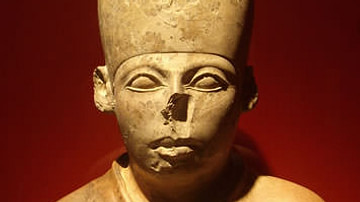
Definition
Second Dynasty of Egypt
The Second Dynasty of Egypt (c. 2890 - c. 2670 BCE) rose from the turmoil which ended the first and was marked by uprisings (or, at least, internal difficulties) throughout. The precise cause of this civil unrest is unclear as sources for...
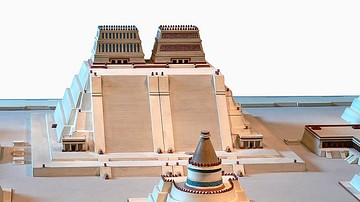
Definition
Templo Mayor - The Aztecs' Greatest Temple
The Templo Mayor or Great Temple (called Hueteocalli by the Aztecs) dominated the central sacred precinct of the Aztec capital Tenochtitlan. Topped by twin temples dedicated to the war god Huitzilopochtli and the rain god Tlaloc it was a...

Definition
Narmer Palette
The Narmer Palette (also known as Narmer's Victory Palette and the Great Hierakonpolis Palette) is an Egyptian ceremonial engraving, a little over two feet (64 cm) tall and shaped like a chevron shield, depicting the First Dynasty king Narmer...
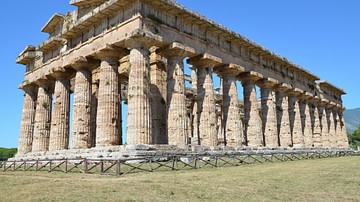
Definition
Paestum
Paestum, also known by its original Greek name as Poseidonia, was a Greek colony founded on the west coast of Italy, some 80 km south of modern-day Naples. Prospering as a trade centre it was conquered first by the Lucanians and then, with...
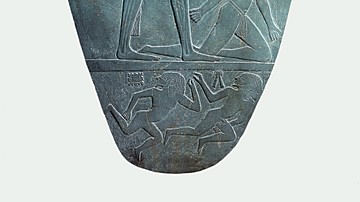
Definition
Narmer
Narmer (c. 3150 BCE) was the first king of Egypt who unified the country peacefully at the beginning of the First Dynastic Period (c. 3150 - 2613 BCE). He has also, however, been cited as the last king of the Predynastic Period (c. 6000 -...
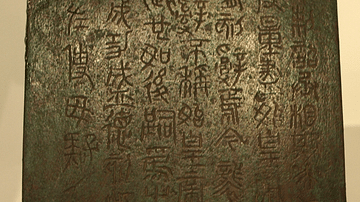
Definition
Legalism
Legalism in ancient China was a philosophical belief that human beings are more inclined to do wrong than right because they are motivated entirely by self-interest and require strict laws to control their impulses. It was developed by the...

Definition
Soma - The Elixir of the Hindu Gods
Soma was a fermented juice drink which was believed to have been consumed by the Hindu gods and their ancient priests, the brahmanas, during rituals. Thought to be an elixir its consumption not only healed illness but also brought great riches...
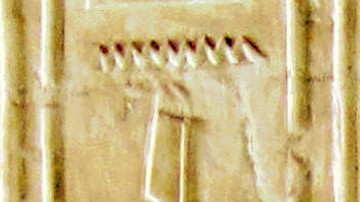
Definition
Menes
Menes (c. 3150 BCE) is the legendary first king of Egypt who is thought to have united Upper and Lower Egypt through conquest and founded both the First Dynasty and the great city of Memphis. His name is known from sources such as Manetho's...

Definition
Shang Dynasty
The Shang Dynasty (c. 1600-1046 BCE) was the second dynasty of China, which succeeded the Xia Dynasty (c. 2070-1600 BCE) after the overthrow of the Xia tyrant Jie by the Shang leader, Tang. Since many historians question whether the Xia Dynasty...
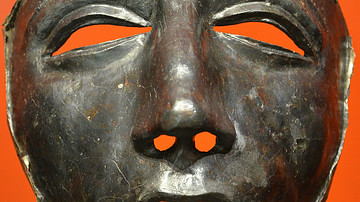
Definition
Publius Quinctilius Varus
Publius Quinctilius Varus (c. 46 BCE – 9 CE) was a Roman politician and general under the rule of Emperor Augustus. He is most remembered for having lost three Roman legions when ambushed by Germanic tribes in the battle of Teutoburg Forest...